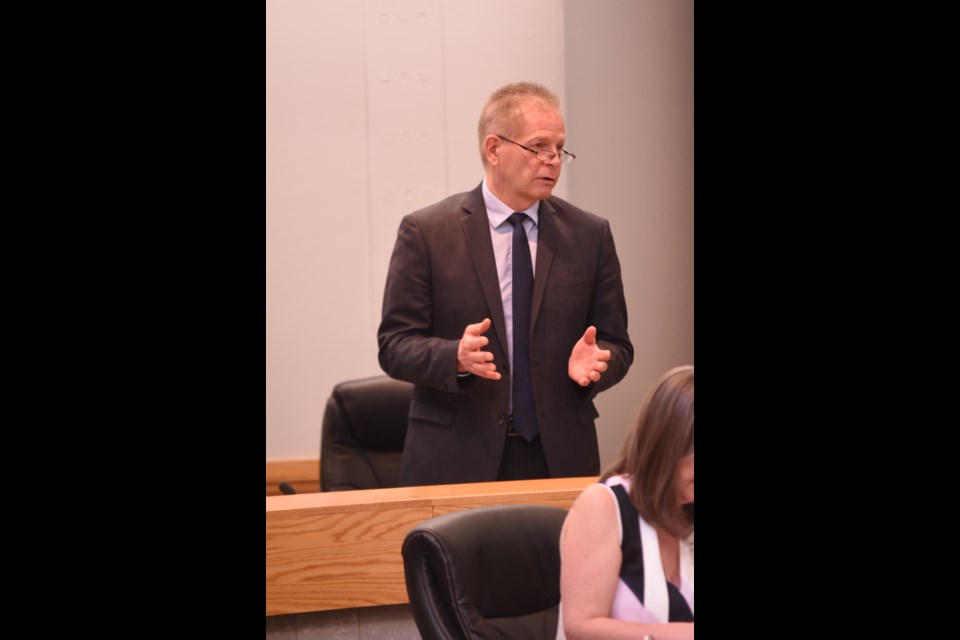The provincial Urban Highway Connector Program (UHCP) has poorly served Moose Jaw over the years due to, among other things, underfunding of the program, says one city councillor.
Moose Jaw was the last municipality to sign up for this program and it has not benefitted as it should, said Coun. Brian Swanson. The provincial government has funded the program poorly, while the municipality has taken on maintenance of more provincial roads within its boundaries.
Last year Moose Jaw received $93,000 from the program.
A resident called Swanson recently with concerns about Main Street North, particularly with the apparent lack of maintenance, he said during council’s June 24 regular meeting while discussing the recent provincial mayors’ caucus meeting in Estevan. Swanson wondered if city administration tracks how much money it spends on municipal roads and provincial roads that run through the community.
“We’ve started to track it that way this year,” said city manager Jim Puffalt, although compared to what the municipality spends on sealing cracks, for example, the amount from the UCHP is small.
When the UHCP agreements first came in, he explained, a rate was established for maintenance of roadways per kilometre, “which was a far cry from before when there was nothing. They at least (give) us something back (now) for maintenance.”
“We have a substantial budget for pothole repair, maintenance and crack repairs (for Main Street),” Puffalt added. “If the area needs to be addressed, we can take a look and see what can be done.”
Besides the UHCP, the use of speed enforcement cameras, strategies to combat gang violence, and acquiring taxes from cannabis sales were other issues Saskatchewan’s mayors discussed during their yearly meeting.
Mayor Fraser Tolmie told city council that the mayors approved a recommendation to have the organization ask the Saskatchewan Urban Municipalities Association (SUMA) to create a policy for speed enforcement cameras. This would look at installation and prosecution, while also potentially considering broader revenue redistribution among municipalities.
“I shared my point of view — and a lot of mayors understand — that this was a pilot project. If it worked in our community, it can work in other communities,” Tolmie said, adding he also told other mayors that the original pilot project communities of Moose Jaw, Regina and Saskatoon are now forced to give up funding from those cameras due to a decision by the provincial government.
Moose Jaw’s position around money generated by those speed cameras is now compromised, Swanson said, particularly since city council recently accepted the new redistribution formula that the provincial government developed.
“The barn door is shut on this one,” he added.
It was important to highlight the speed enforcement camera agreement that council agreed to sign with the province for another three years, Tolmie said.
Council did not originally have a plan to deal with the intersection of Highway 1 and Ninth Avenue North, he continued. The four cameras installed throughout the community have served their purpose in helping reduce accidents.
While supporting that agreement means some revenue will be generated for municipal coffers, Tolmie was also disappointed that most of the funding will now leave the community. He added that council has three years to determine whether it wants to sign another contract with the province.
The next regular council meeting is Monday, July 8.




